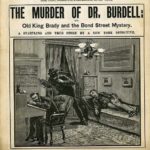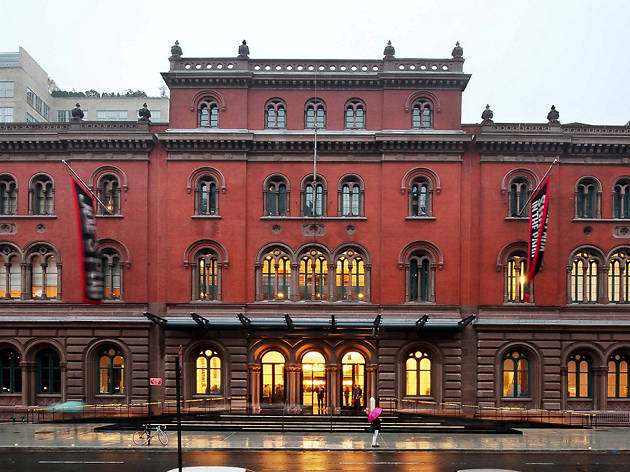
This Halloween season, we’re revisiting one of the most gruesome, macabre murders in New York City history. On January 30th, 1857 on quiet Bond Street, Dr. Harvey Burdell was strangled and stabbed to death, only to be discovered the next day by his servant. What followed was a tale of intrigue, twists, and terrible turns. By the summer, the entire country was following the saga.
Dr. Burdell had been murdered in his dentistry office, and blood splattered the room. By midday, crowds of up to 2,000 curious onlookers had descended onto the block, trying to learn more and sneak a peek of the body. A coroner was quickly called and a trial of jurors quickly assembled. In these times, forensic evidence could not be maintained, so an on-site trial was needed.
An interrogation of the houses inhabitants revealed not all was rosy at 31 Bond Street. To fully understand why, we need to go back to 1854, when Emma Cunningham’s first husband perished, and left behind a meager sum of $10,000 to his wife. With several children and not enough money, she quickly sought suitors and set her sights on Dr. Burdell. Within a few months the two spent an entire summer together in Saratoga Springs, and after their return to New York, Dr. Burdell installed Cunningham as landlady of 31 Bond, where he kept his dental office.
She ran a boardinghouse on site, and both her and Dr. Burdell lives in rooms too. Their relationship unfortunately began to sour – fast. Dr. Burdell was known to frequent brothels on Bowery and even brought sex workers into his office for free dental work. This, of course, enraged Emma. But things got even worse when Dr. Burdell began a romantic relationship with his much younger cousin, Dimis Hubbard. The two were well-known for getting in screaming matches and arguments. Dr. Burdell no longer took his meals at 31 Bond, instead preferring to eat at a nearby hotel, as to avoid Emma.
After his body was discovered, the police questioned all of the residents at 31 Bond. In the course of testimony, Emma produced a marriage proving she had been married, in secret, to Dr. Burdell. However, maids revealed she was in fact having her own affair with a tenant named John Eckel. Meanwhile Dimis alleged Dr. Burdell was going to get rid of Emma soon, and another maid had overheard Emma state that “[Dr. Burdell] may not live to sign the papers.”
At the same time, Dr. Burdell was rumored to owe substantial debts, and is believed to have made various enemies from the Bowery’s unsavory characters. Further complicating matters, another tenant, George Snodgrass, was revealed to be in a secret relationship with one of Emma’s daughters, who also lived on site. He was believed to have a disdain for Dr. Burdell. Plus, Dr. Burdell had begun to cease financial support to Emma.
Theories abounded. Had Emma murdered him out of romantic jealousy or over his plans to cut her out of his finances? After all, as his secret wife she would be entitled to his considerable estate. Had John Eckel done the deed out of jealousy? Was it over money, or something else that had transpired between Dr. Burdell and a colleague from the Bowery? Could it have been George Snodgrass, in a misguided attempt to secure a fortune for his own love interest? Dr. Burdell hadn’t come in until very late the night of his death, perhaps it was a drunken fight?
However, when the coroner determined a left-handed perpetrator had committed the crime, all eyes turned to the left-handed Emma. Ultimately, she and John Eckel were charged with murder. George Snodgrass was charged as an accessory. By the this point, two weeks after the murder, the trial had become a national event. Over 8,000 people attended Dr. Burdell’s funeral. When Emma’s trial began in May, tens of thousands showed up for an attempt to hear her case, most waiting outside of the courthouse.
With little actual evidence, Emma was found not guilty, and the other two charged were never put to trial. The story gradually died down, and Emma ultimately died in relative destitution. The real killer was never conclusively found.
Perhaps more importantly, the case led to the rise of Samuel Tilden. A young lawyer, he was prosecutor on behalf of the Burdell family, and went on to become governor of New York, presidential candidate, and eventually a major challenger of Tammany Hall. The case is widely believed to have elevated his profile to a level he was able to just that.
The information for this article is consolidated from Benjaman Feldman’s book, Butchery on Bond Street.




